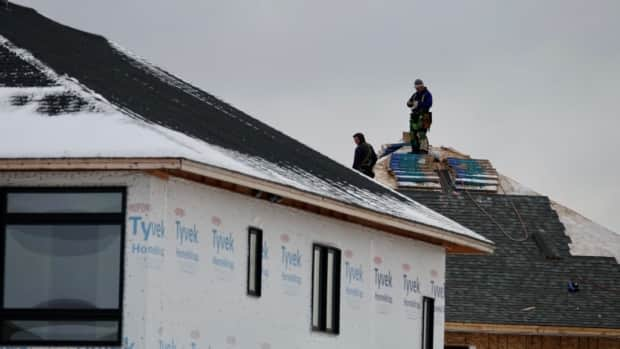City of Ottawa to pledge to help build 151,000 homes in next decade

UPDATE: Council unanimously approved the housing pledge at its meeting on March 22, 2023.
Ottawa's mayor is set to sign a pledge laying out how the city will help the Ontario government hit its ambitious targets for home construction in the coming decade.
Not doing so could affect whether the City of Ottawa receives funding to deal with the financial impacts of last fall's sweeping provincial housing legislation. City staff estimate the changes, such as waiving development fees on triplexes and affordable housing, could cost Ottawa $60 million a year by 2025.
The Ontario government announced last October it intended to build 1.5 million homes by the end of 2031, and assigned individual targets to 29 of the largest and fastest-growing cities and towns.
Ottawa was told to hit 151,000 units — a figure that is double the 76,000 homes the city itself had calculated it would need when it projected population growth for the recently approved official plan.
Municipal affairs and housing minister Steve Clark then sent mayors letters last month outlining what actions they could put into their housing pledges, and said they were due by March 22.
Building permits down after record year
Ottawa's planning and housing committee endorsed a document on Monday that shows how policies in the new official plan will promote higher buildings along many busier corridors and near transit stations. The city also intends to boost affordable housing on surplus city-owned and federal lands, and create a team to work on converting downtown offices.

Councillors wholly supported creating more housing of all types, but weren't convinced Ottawa could meet the target. So much depends on the development industry deciding to put shovels in the ground, at a time when labour is short and borrowing rates are high, they pointed out.
Staff confirmed building permits have fallen off considerably from 2022, when the City of Ottawa issued a record-setting 12,600 permits.
In order to meet the Progressive Conservative government's target, however, the municipality would need to consistently hand out 15,100 building permits in each of the coming years.
That's theoretically possible, said Royce Fu, the city's acting manager of policy planning. Tens of thousands of units are already under construction, approved, or in the queue for zoning approval.
Many factors outside the city's control would need to align in the housing market, he said.
Developers 'control supply'
The Greater Ottawa Home Builders Association signed a letter promising to support the City of Ottawa as it pledges to boost housing supply.
But Coun. Riley Brockington said the private development industry itself controls housing supply.
"They could triple, quadruple their units if they wanted to because they have the land," Brockington said. Instead, developers assess the prices at which they can sell homes and try to maximize profit, he said.
Coun. Catherine Kitts, who represents Orléans South-Navan, was concerned the pledge was a way to have cities agree to the contents of last fall's controversial Bill 23 or risk not getting funding.
"I am uneasy about how this pledge might get used against us," she said.
The committee nonetheless approved the pledge unanimously and sent it on to city council for approval this Wednesday.
Committee chair Jeff Leiper agreed it might be hard to hit Ontario's target — one he said could turn out to be "arbitrary" — but said he was "very comfortable" the actions laid out in the city's own pledge would create housing of all types.
Reviewing the city's zoning across the city, and making sure red tape doesn't affect housing permits, are the right steps for building a more sustainable and affordable city, Leiper said.
The city will do its part to create the conditions to boost housing, Leiper said, and now expects the province to follow through with money for the infrastructure for those extra homes.


